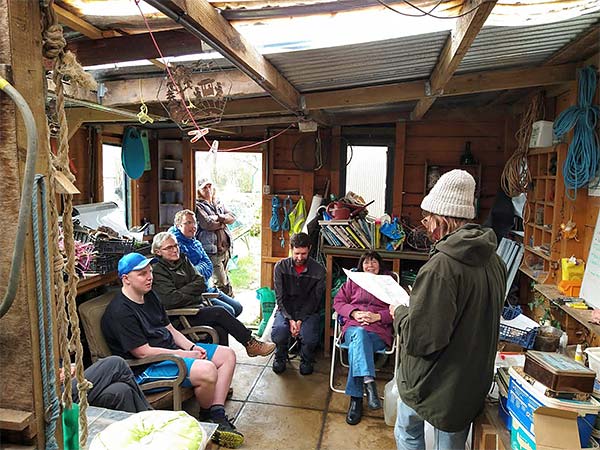Subtotal: $
Checkout-

Letters from Readers
-

Nonexistence Does Not Scare Me
-

Toyohiko Kagawa
-

Covering the Cover: Beyond Borders
-

Choosing America
-

Church as Sanctuary and Shelter
-

Northern Ireland’s New Troubles
-

When Migrants Come Knocking
-

The Florentine Option
-

Three Kants and a Thousand Skulls
-

The End of Rage
-

Telling a Tale of Two Fathers (Video)
-

Home Is Not Just a Place
-

The Quest for Home
-

In Search of Lost Fig Trees
-

Child of the Stars
-

Refugee Letters
-

Life in Zion
-

How to Run a Cemetery
-

Integrity and the Future of the Church
-

Daring to Follow the Call
-

Poem: “For the Celts”
-

Poem: “Wreathmaking”
-

Poem: “The Hunger Winter, 1944–5”
-

Editors’ Picks: The Cult of Smart
-

Editors’ Picks: The Utopians
-

Editors’ Picks: The Lincoln Highway
-

Casa de Paz

The Pilsdon Community
On the Dorset coast, a farm offers community, work, and sanctuary to those who need healing and a new direction.
By Tobias Jones
December 4, 2021
Next Article:
Explore Other Articles:
The Pilsdon Community was founded in 1958 by a visionary Anglican priest, Percy Smith, and his wife, Gaynor, who had both been inspired by the story of Nicholas Ferrar’s seventeenth-century religious community at Little Gidding. Most people first glimpse the community from the Iron Age hill fort, Pilsdon Pen, which overlooks the green fields of the Marshwood Vale and, just beyond, the Dorset coastline. There, far below, is the three-story manor house with its grassy quadrangle created by barns, stables, looseboxes, pigsties, and other outbuildings. Its twelve acres have all the usual greenhouses, vegetable patches, and livestock you would expect of an intentional community, plus a medieval stone church by the stream.

Garden meeting at Pilsdon community, March 2021 Photograph courtesy of the Pilsdon community
It’s a community whose founding purpose is to offer sanctuary to people in a period of crisis in their lives. There are usually about half a dozen community members and twenty or so guests, some of whom have lived there for many years. There are also weekend visitors and volunteers. There’s a regular rhythm to the community, with bells announcing meals and prayers, which are usually drawn from the Society of St Francis’s daily office, Celebrating Common Prayer.
Percy Smith called Pilsdon “a school for sinners, not a museum of saints,” and it’s a working farm which often feels distinguished by its humility and simplicity. There’s a lot of mud and manure and earthy humor. Pilsdon doesn’t do branding, or franchising, or even shout about itself to the world. But it’s a place where agricultural parables suddenly seem to make sense, and where broken people are given the time, and love, to make sense of themselves and their wounds. While there’s not a formal, therapeutic program, the combination of a drink- and drug-free space with lots of good food, companionship, manual labor, and mentoring often helps people begin to put their lives back together.
Pilsdon is gradually opening up to new people as Covid restrictions ease. Please visit pilsdon.org.uk for more information.
Already a subscriber? Sign in
Try 3 months of unlimited access. Start your FREE TRIAL today. Cancel anytime.







































Melchior J Fros
Interesting read! Thanks. Acts of mercy and undeserved kindness is the "religion" that warms my innards.
Bob Dipert
We need more places like this in our world of brokenness.